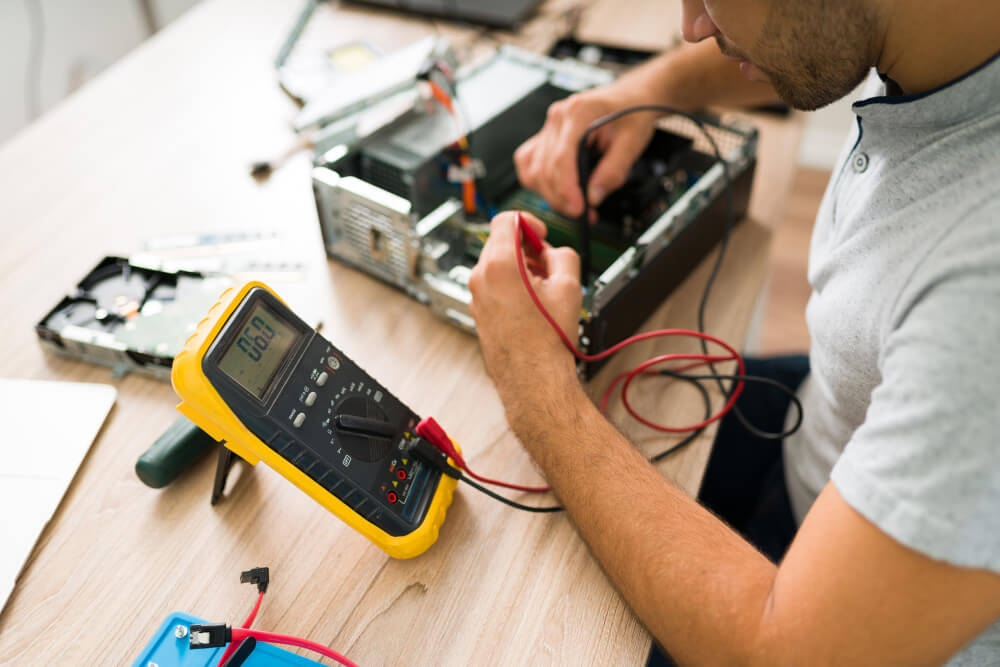Top 5 Common Mistakes to Avoid in Electrical Calibration

Introduction:
Electrical calibration is a critical process in various industries, ensuring the accuracy and reliability of electrical instruments. However, even the most experienced technicians can make mistakes that compromise the effectiveness of calibration. In this article, we'll delve into the top 5 common mistakes to avoid in electrical calibration to maintain precision and efficiency in your operations.
1. Neglecting Regular Calibration Checks:
One of the most common mistakes in electrical calibration is neglecting regular checks. Electrical instruments can drift over time due to environmental factors, usage, and other variables. Skipping scheduled calibration checks can lead to inaccurate measurements, jeopardizing the quality of your work and potentially compromising safety. It's essential to adhere to a strict calibration schedule to ensure the continued accuracy of your instruments.
2. Improper Environmental Conditions:
Another prevalent mistake is performing calibration in improper environmental conditions. Factors such as temperature, humidity, and electromagnetic interference can affect the accuracy of calibration. Conducting calibration in an unsuitable environment can lead to inconsistent results and errors in measurements. It's crucial to calibrate electrical instruments in controlled environments that mimic the conditions they will encounter during use.
3. Using Incorrect Calibration Standards:
Using incorrect calibration standards is a common pitfall that can result in inaccurate measurements. Each electrical instrument requires specific calibration standards tailored to its parameters and operating range. Using the wrong standards or outdated calibration procedures can lead to errors in calibration, rendering the process ineffective. Always ensure that you're using the appropriate calibration standards recommended by the instrument manufacturer.
4. Overlooking Documentation and Record-Keeping:
Documentation and record-keeping are often overlooked but are essential aspects of effective electrical calibration. Failing to maintain detailed records of calibration procedures, results, and adjustments can make it challenging to track the performance of instruments over time. Additionally, inadequate documentation may lead to compliance issues in regulated industries. Make it a priority to maintain accurate and up-to-date calibration records for all instruments.
5. Ignoring Training and Skill Development:
Lastly, neglecting training and skill development among personnel involved in calibration can lead to costly mistakes. Calibration technicians must undergo comprehensive training to understand the intricacies of electrical instruments and calibration procedures. Without proper training, technicians may overlook critical steps, misinterpret results, or mishandle instruments, leading to errors in calibration. Invest in ongoing training and skill development to ensure that your team performs calibration accurately and efficiently.
Conclusion:
In conclusion, avoiding these common mistakes is crucial for achieving accurate and reliable electrical calibration results. By adhering to a regular calibration schedule, maintaining proper environmental conditions, using correct calibration standards, documenting procedures diligently, and investing in training and skill development, you can enhance the effectiveness of your calibration process. Remember, accuracy in calibration is paramount for ensuring the quality, safety, and compliance of your operations.
Remember to avoid these common mistakes to ensure accurate and reliable electrical calibration results, enhancing the quality, safety, and compliance of your operations.
- Industry
- Art
- Causes
- Crafts
- Dance
- Drinks
- Film
- Fitness
- Food
- Jeux
- Gardening
- Health
- Domicile
- Literature
- Music
- Networking
- Autre
- Party
- Religion
- Shopping
- Sports
- Theater
- Wellness
- News


